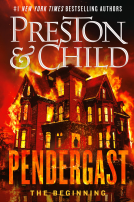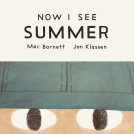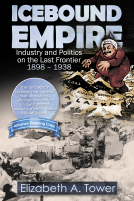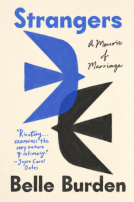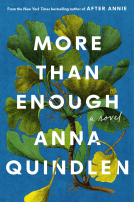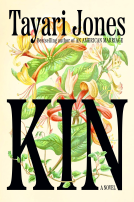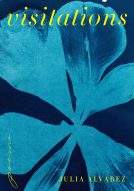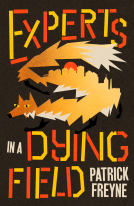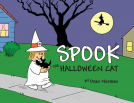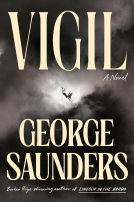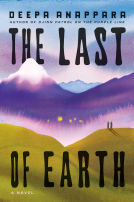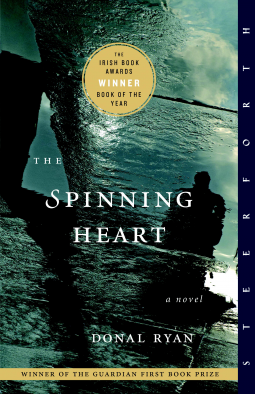
The Spinning Heart
A Novel
by Donal Ryan
This title was previously available on NetGalley and is now archived.
Send NetGalley books directly to your Kindle or Kindle app
1
To read on a Kindle or Kindle app, please add kindle@netgalley.com as an approved email address to receive files in your Amazon account. Click here for step-by-step instructions.
2
Also find your Kindle email address within your Amazon account, and enter it here.
Pub Date Feb 25 2014 | Archive Date Feb 24 2014
Steerforth Press | Steerforth
Description
Finalist for the Booker Prize
This “affecting” debut is “reminiscent of William Faulkner’s As I Lay Dying” as it paints a vivid portrait of a working-class community in contemporary rural Ireland (New York Times Book Review).
“One of my favorite Irish books . . . Moving, atmospheric and beautiful.” —Tana French
In the aftermath of Ireland’s financial collapse, dangerous tensions surface in an Irish town. As violence flares, the characters face a battle between public persona and inner desires. Through a chorus of unique voices, each struggling to tell their own kind of truth, a single authentic tale unfolds.
The Spinning Heart speaks for contemporary Ireland like no other novel. Wry, vulnerable, all-too human, it captures the language and spirit of rural Ireland and with uncanny perception articulates the words and thoughts of a generation. Technically daring and evocative of Patrick McCabe and J.M. Synge, this novel of small-town life is witty, dark, and sweetly poignant. Donal Ryan’s brilliantly realized debut announces a stunning new voice in fiction.
Irish Book of the Decade (Dublin Book Festival)
First Book Award (The Guardian)
“Newcomer of the Year” and “Book of the Year” (Irish Book Award)
“Best Book of the Year” (Library Journal)
A Note From the Publisher
US Only Rights
Advance Praise
Winner - The Guardian First Book Award
Winner of two Irish Book Awards - Newcomer of The Year and Book of The Year
Longlisted for the IMPAC Dublin Literary Award
Longlisted for the Man Booker Prize
"Irish author Ryan's debut takes readers to the 'heart' of hardscrabble life in Ireland in the era after the economic boom and bust of 2008. The novel received Book of the Year honors at the Irish Book Awards. . . . Reminiscent of Faulkner’s As I Lay Dying, this book gives readers a story—or rather stories—told from multiple perspectives, each chapter using a different voice. . . . Disturbing and unnerving but ultimately beautiful." -- Kirkus Reviews (Starred Review)
"The traditional epithet for a good first novel is 'promising'. The Spinning Heart, however, is far more than that. Instead, it's the unambiguous announcement of a genuine and apparently fully-formed new talent." -- The Spectator
"A funny, moving, technically inventive first novel.... Structurally the novel gestures to William Faulkner's As I Lay Dying, while Ryan's sensitive observations on Irish life seem responsive to the work of his compatriot Patrick McCabe. That Ryan does not look out of place in such literary company is a measure of his achievement." -- The Financial Times
"The recession has hit rural Ireland, and 'the sky is falling down." Through 21 different voices, Donal Ryan's virtuoso debut novel pieces together a fractured portrait of a community in shock. . . . What is so special about Ryan's novel is that it seems to draw speech out of the deepest silences; the testimony of his characters rings rich and true – funny and poignant and banal and extraordinary – and we can't help but listen." -- The Guardian
"I have ordered a copy of The Spinning Heart for everyone I know who loves to read. What a treasure of a book." -- Natascha McElhone
"I can't imagine a more original, more perceptive or more passionate work than this. Outstanding." -- John Boyne
"A first novel that's up-to-date in its concerns but that also transcends the merely topical in its bleak, if often savagely funny, vision of a rural Ireland. Donal Ryan has an imaginative insight into his characters that's all his own and a furious energy to his prose that gives arrestingly vivid life to these blighted souls." -- John Boland
"Ryan's feat is considerable. Narrative and character information is distributed among so many different voices and yet we never feel at a loss. Best of all, Ryan's ear for speech is acute...Given a novel as brilliantly realized as The Spinning Heart, I see no reason to look anywhere but the present. For Donal Ryan, the future is now." -- Declan Hughes
"A new Irish writer of the very first order. Donal Ryan is the real deal." -- The Sunday Independent
"For all the harshness of language and the often brutal experiences, The Spinning Heart is unexpectedly tender. . . . An exciting contemporary novel about the lost and the wounded that listens to the present without discarding either the sins of the fathers or the literary legacy of the past." -- The Irish Times
"Startling audacity... [The Spinning Heart] may be slim in size, but it is hugely ambitious in structure and devastating in its emotional impact. Too often contemporary fiction is criticized for not engaging enough with contemporary issues, but this breathtakingly empathetic account of a community crumbling under the pressures of the recession deserves to stand as a companion piece to Anne Enright's wonderful The Forgotten Waltz, also set against the boom and bust of recent Irish history." -- Lisa Allardice, Guardian First Book Award Chair andGuardian Review Editor
Marketing Plan
Author available for media interviews.
Tie-in to St. Patrick's-Day-inspired coverage of Irish culture.
Widespread review attention in general print and on-line review publications .
Featured in Irish-interest media.Featured in financial media that covers literature --WSJ, Financial Times, NPR's Marketplace, Bloomberg Business Week, etc. -- due to its focus on the human costs of Ireland's economic collapse.
Major ARC printing and distribution.
Indie Next - September White Box Mailing.
B&N Discover Submission
Available Editions
| EDITION | Other Format |
| ISBN | 9781586422240 |
| PRICE | $16.00 (USD) |
Links
Average rating from 23 members
Featured Reviews
 Susan D, Reviewer
Susan D, Reviewer
In The Spinning Heart, a small Irish town is suffering under the weight of the late 2000s economic bust that saw industry leave the country and the building boom come to a screeching halt. Unemployment is rampant. Alcohol use, always an issue in Ireland and Irish literature, is also rising. Ryan has chosen to present his portrait of the town and time through snapshots of town residents, spoken in their voices.
Chief among them is Bobby Mahon, product of a rough home, but largely appreciated in the town. He grew up with a cruel father and a mother he loved who was powerless to stop the man. On visiting a friend's house for dinner he sees:
"Their father was wiry and kind-looking. He had a lovely smile. He'd warm you with it. You knew there was nothing in him only good nature....It twisted my soul, the pleasure of that house, the warmth of it and the laughter; it was nearly unbearable to be there and to have half my mind filled with the chill and the gloom and the thick silence of our cottage." (loc 98)
The writing throughout is excellent, often rough, occasionally lyrical. The most lyrical passage for me was an immigrant's view of the land, an unemployed worker from Siberia.
"There is no flatness in this land. It is all small hills and hidden valleys. Birds sing that I cannot see; they hide in trees and fly in covered skies. The horizon is close and small. There is daily rain that makes the earth green.
A short journey in any direction ends at the sea." (loc 308)
Each person reveals another layer of the town's life as well as their own.
Definitely recommended
An advance copy of this book was provided by the publisher through NetGalley for the purpose of an unbiased review.
this book won "book of the year" at the irish book awards. if james joyce had published every single book he had ever written in 2012, this book still would have won. hi, i'm karen - i make bold declarative statements. welcome.
this book is a stunner. like broken harbor, it speaks to the devastating economic and social climate in ireland after the death of the celtic tiger. in this particular, unnamed, small town, when the local construction company goes out of business and its owner skips town without paying his workers their wages, it is just one factor contributing to a series of events that will ultimately end in kidnapping and murder.
this book captures small-town life perfectly. it is told in a chorus of voices, where each chapter is narrated (in dialect) by a single character, and through their individual voices, we see a whole tapestry of resentments, ambitions, yearning, grief, admiration - the shared, embarrassed past and the shining, small-scale heroes. it is so deftly handled in such a short book - it is nothing short of astonishing.
it is funny, it is sad, it is dark, it is a scattershot of singular, lonely existences that make up this heartbreaking jewel of a novel. but there is a story here - it is not just a collection of experiences, it just happens to be narrated by a number of different people and perspectives, some unreliable, for sure, but the interlocking bits do make up a cohesive story. it is gripping, it is wonderful, and i cannot wait to read more from him.
My first thought is that this reminded me of the writings of Maeve Binchy but with more grit and gristle. Each chapter is a story told by intertwining characters, moving the story forward and revealing bits and pieces of the lives they lead in this depressed Irish community. Irish story telling at its best.
